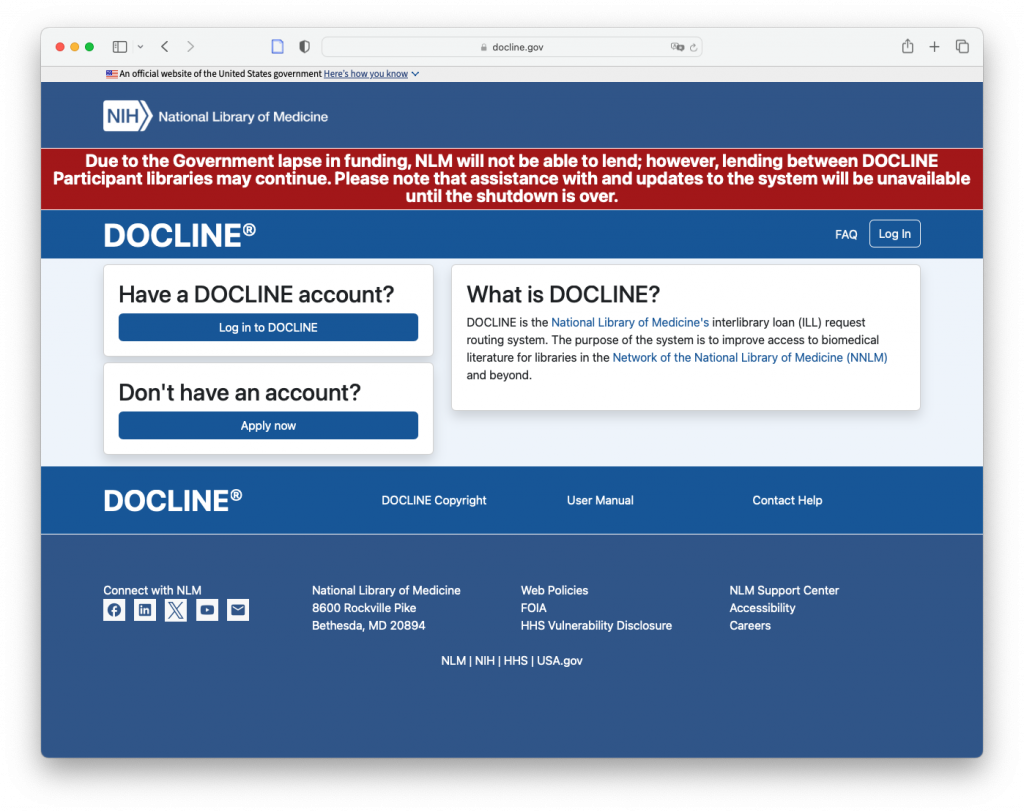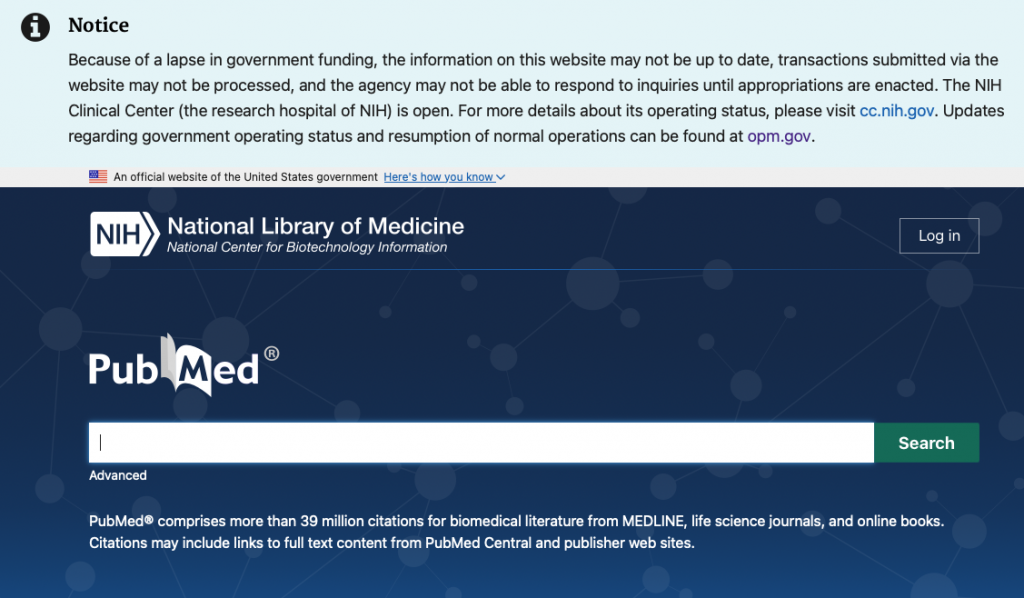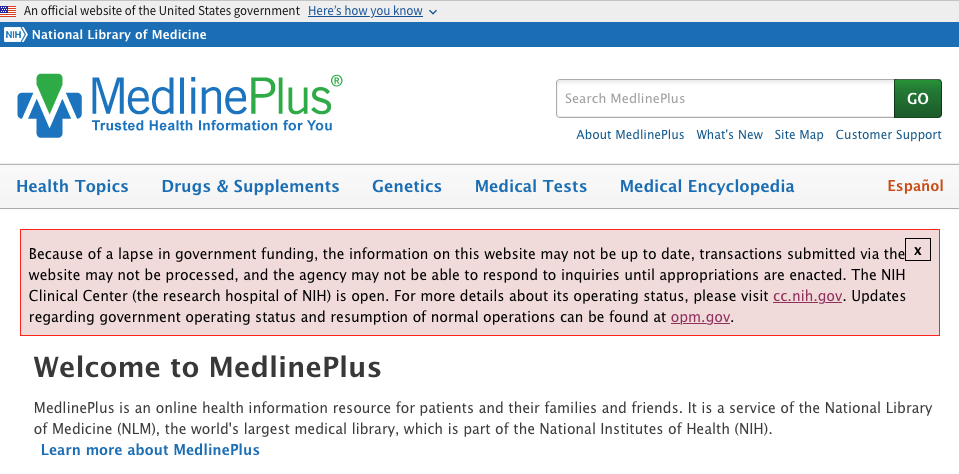At the time of this writing, we are on day 22 of a U.S. Government shutdown. When the U.S. Government shuts down, most people think of national parks and travel delays. But the impact goes much deeper, into the systems that keep health sciences research and clinical practice running. Many federally-funded databases and information services discontinue updates or suspend operations, cutting off the flow of reliable information that healthcare professionals rely on to make clinical and policy decisions.
On October 1st 2025, when Congress reached a funding deadlock, disclaimers started popping up on many government websites, including health-related websites regularly used by librarians to support research needs. PubMed, the “National Library of Medicine’s free, searchable bibliographic database supporting scientific and medical research,”1 displayed this alarming banner:
The same banner can be seen on other websites, including MedlinePlus, an information hub for patient and their families, also maintained by the National Library of Medicine (NLM).
Because these tasks are mostly automated, citations are still being uploaded to PubMed, and articles are still being indexed. However, because the National Institutes of Health (NIH) has furloughed thousands of employees, according to Dyer (2025) the indexing of new journals has been suspended.2 But Dyer also notes that when the government resumes its normal activities, the Literature Selection Technical Review Committee – the group responsible for evaluating and approving journals for inclusion in PubMed – will no longer be operational. All 15 members of the committee were terminated by the Trump Administration earlier this fall.3
Another service that has been halted is document lending through DOCLINE, the National Library of Medicine’s official interlibrary loan request routing system. The banner on the DOCLINE homepage states that the NLM will not be fulfilling lending requests during the shutdown.4 Fortunately, participating institutions can still request and share materials among themselves. However, in the last few weeks, medical librarians have reported on the Medical Library Association’s listerserv that they are experiencing problems with DOCLINE, specifically that requests are not automatically rerouting as they normally would. As sometimes happens, when the NLM is the only library holding a particular article, requestors are left in the dark, unable to obtain material until government operations resume. For clinicians, researchers, and students who depend on rapid access to medical literature, even short interruptions like this can affect research progress, delay evidence-based decision making and disrupt patient care.

And just as librarians were beginning to adapt, finding solutions and supporting one another as we so often do, another challenge emerged. Last week we learned of the firing of all Centers for Disease Control and Prevention (CDC) library workers. In an earlier blog post on evidence-based medicine, we noted the importance of the CDC and their publication of the Morbidity and Mortality Weekly Report. In an interview the Washington Post, former CDC librarian Gail Bang, said: “It’s hard — almost impossible — for the researchers to do valid scientific research without the librarians.”5 Every Library, an non-profit organization that supports libraries and librarians in the United States, has started a petition calling on the government to reinstate CDC library workers. The petition has been shared numerous times among health librarians.
The current government shutdown highlights just how fragile the infrastructure supporting health information can be. From suspended updates to PubMed and MedlinePlus, to halted interlibrary loan services through DOCLINE, and the recent firing of CDC library staff, the consequences are far-reaching. Librarians work tirelessly behind the scenes to mitigate these disruptions, but even our ingenuity has limits when those responsible for governance fail to reach a compromise.
- What is PubMed? National Library of Medicine. Accessed on October 17, 2025. https://www.nlm.nih.gov/oet/ed/pubmed/mesh/mod00/01-000.html?utm_source=chatgpt.com ↩︎
- Dyer, O. (2025). PubMed is running on autopilot during shutdown, but key independent committee has been abolished. BMJ (Clinical Research Ed.), 391, r2158. https://doi.org/10.1136/bmj.r2158 ↩︎
- Journal Selection for MEDLINE. National Library of Medicine. Accessed on October 17, 2025. https://www.nlm.nih.gov/medline/medline_journal_selection.html ↩︎
- DOCLINE. National Library of Medicine. Accessed on October 17, 2025. https://www.docline.gov/docline/needs_authentication/?next=/docline/
↩︎ - Charles, Ron. (2025, Oct 17). Book Club. Accessed October 18, 2025. https://www.washingtonpost.com/newsletters/book-club/ ↩︎


